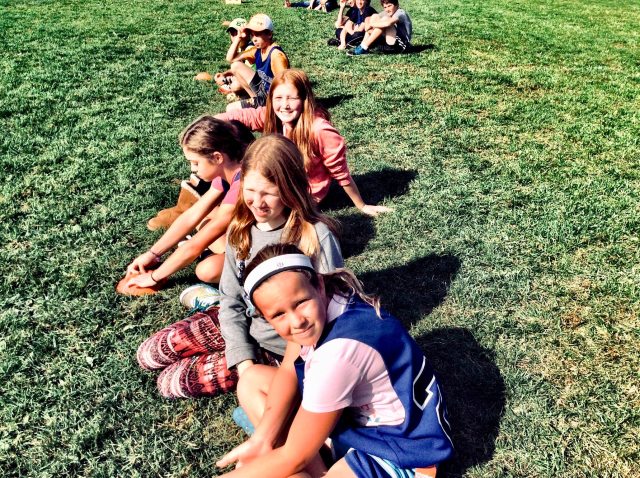Summer Camp is right around the corner, and with the fun and excitement of any new environment with school-aged children comes the threat of bullies. Statistics show that 160,000 kids stay home from school each day to avoid being bullied, and sadly, bullies do not take summer vacation when the school year is over. While most camps have a zero tolerance policy in the handbooks for bullying behavior, it is important to teach your children what to do when they find themselves in an uncomfortable situation at camp.
Walk Away: Often times, bullies engage in negative behavior because they are seeking attention. Rather than breaking down in tears or firing back insults, tell your child to simply walk away. Explain to your child that by walking away, your child takes control of the situation and removes the power from the bully.
Keep Calm and Carry On: If your child does not feel physically threatened, encourage them to take a deep breath, use body language to show they are not afraid (stand tall, make eye contact) and ask the bully point blank to stop.
Remove Yourself from the Situation: If a bully is always lurking around by a specific lunch table, avoid that area or take a different route. As long as your child isn’t going out of their way to avoid the bully, avoidance is a pretty easy rule of thumb.
Adopt the Buddy System: There is safety in numbers—two or more friends are less likely to be picked on than a child who is alone. Remind your child to stay with a buddy who they feel safe with throughout the day, or where bullying situations may occur (the bus, restrooms, etc.).
Report the Behavior to a Trusted Adult: Whether it is a counselor, camp director or another adult who works at the camp, encourage your child to speak up to someone they can confide in. Many times, children worry about being tattletales, which would give a bully more ammunition, which is why it is important to empower them to have a conversation with an authority figure in private. Nowadays, the words “I am being bullied” carry an immediate call to action, where a grown-up should intervene immediately.
Additionally, when it comes to bullying prevention, it is key for parents to empower their children at an early age to be comfortable in their own skin. Prior to the start of camp, consider reading a picture book together that promotes self-acceptance, like “Being Small (Isn’t So Bad After All),” a book I wrote for my own daughter who was teased because she was the shortest kid in her class. Many times, these books help to open the dialogue between a parent and child in a subtle way about an issue they might face, and how they’ll handle it.











